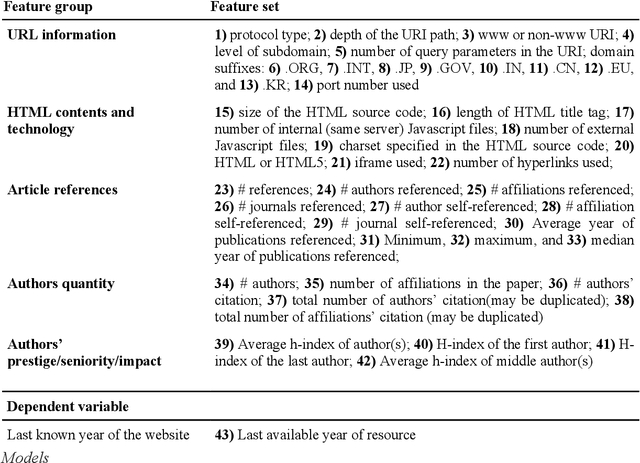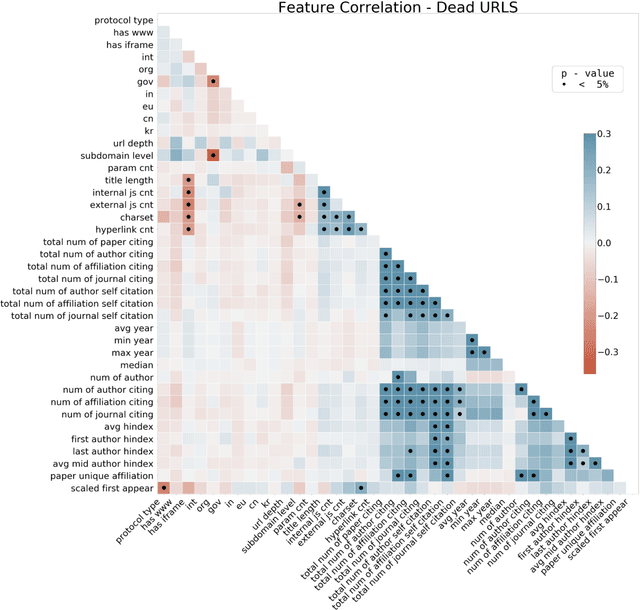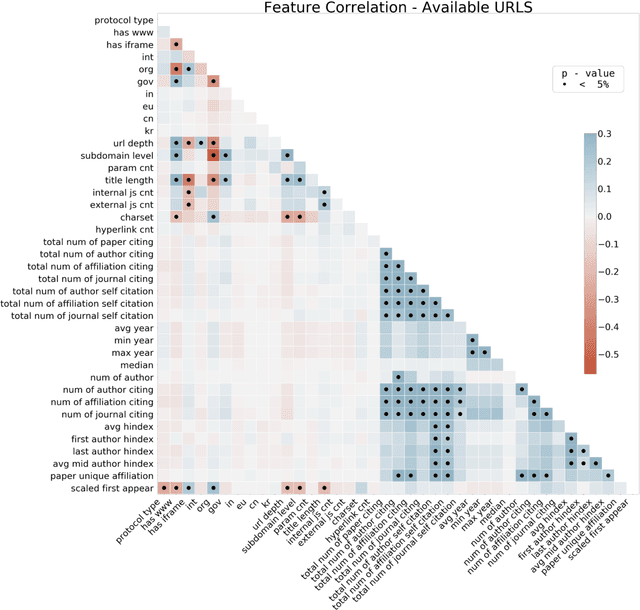Jian Jian
Predicting the longevity of resources shared in scientific publications
Mar 24, 2022



Abstract:Research has shown that most resources shared in articles (e.g., URLs to code or data) are not kept up to date and mostly disappear from the web after some years (Zeng et al., 2019). Little is known about the factors that differentiate and predict the longevity of these resources. This article explores a range of explanatory features related to the publication venue, authors, references, and where the resource is shared. We analyze an extensive repository of publications and, through web archival services, reconstruct how they looked at different time points. We discover that the most important factors are related to where and how the resource is shared, and surprisingly little is explained by the author's reputation or prestige of the journal. By examining the places where long-lasting resources are shared, we suggest that it is critical to disseminate and create standards with modern technologies. Finally, we discuss implications for reproducibility and recognizing scientific datasets as first-class citizens.
 Add to Chrome
Add to Chrome Add to Firefox
Add to Firefox Add to Edge
Add to Edge